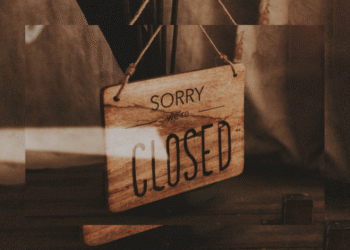Discover why Coca-Cola to close five German plants over next year, its impact on jobs, and what it means for communities.
I will never forget the day I heard the news for the first time. I took a dip on a cool bottle of cola in a small corner café, scrolling through my phone, when a heading showed up: “Coca-Cola to shut down five German plants next year.” I blinked twice and thought it would be a repetition. But as I read deeply, it became clear—it was not gossip. This was a difficult fact, supported by statements from Coca-Cola Europacific Partners.
At that moment I found a strange mix of distrust and curiosity. Unbelieving, because Coca-Cola always felt untouchable, was a brand woven into everyday life. Curiosity, because I wanted to know why a global legend like Coca-Cola would decide to shut down its five plants in Germany—a country that has always been one of its strongholds.
So I did what I usually do when something is on my mind: I dug deep. What I found was not just a history of reorganization—it was about people, local communities, and the shifting economy. It revealed the bigger picture of how even the strongest brands sometimes need to reinforce themselves. And I want to take you with me on that journey.
Little Backster: Coca-Cola and Germany
When you think of Coca-Cola, there is a possibility that your brain will jump into America. Baseball games, dinner and red vending machines that exist forever. But Coca-Cola’s relationship with Germany is just historical, and in some ways, even more attractive.
Do you know that Coca-Cola has been in Germany since the 1920s? Over time, it can call some local people by being just an imported drink. In fact, during World War II, when the contents of Coke were dry, the German bottles followed with some brand new: Fanta. Yes, the fruit noise you hold in barbecue was really born of need in Germany.
Decades later faster, and Coca-Cola is not just a drink-it is part of the cultural landscape in Germany. From Berlin clubs to Outrafest stalls from Munich, from highway to family dinner, Coke has become part of countless German stories.
This is why the news of Coca-Cola was another hit to close five German plants next year. It’s not just about closing factories. It is about a brand that withdraws from local communities around generations where it was once permanent.
What really happens?
Let’s get facts directly. Bottling and distribution power plants for Coca-Cola in Germany announced the Coca-Cola Europeric Partners (CCEP) that five plants would be closed by 2025. The affected places include:
- Perfume
- Neumster
- Berlin-Hohnshonosan
- Beefeld
- Memory
Now these are not small facilities. They have been part of the supply chain that flows Coca-Cola in Germany. Closing them means that around 505 jobs are at risk, although the company has also stated that around 207 employees can be transferred to other websites, and about 78 new roles will be done elsewhere.
On paper, it can only look like another reorganization trick. But when you peel the teams back, there is much more to it.
Why do Coca-Cola close these plants?
This was the first question that crossed my mind: Why now? Why here?
Official argument boils some important factors:
- Logistics think about how much the world of supply has changed over the past decade. Centralized hubs, sharp shipping models, digital tracking-all these trends are transforming industries, and Coca-Cola is no exception. The company wants smaller, large, more effective plants instead of spreading too much websites.
- Cost cut and efficiency Large brands look for ways to trim consistent costs, especially in difficult financial time. Germany has high labor costs, strict rules and rising energy prices. Integrating the plants helps Coca-Cola save money in a long time.
- In some categories, the decline in demand changes consumer habits. Health -conscious buyers arrive for energy drinks in bottles of water, juice or even sugar. Coca-Cola knows this and tries to axis while cutting losses in under-performing areas.
- Global reorganization It is not just about Germany. All over the world, Coca-Cola is considering how it works. Closings fit into a major strategy to streamline and optimize the realities of the global market.
When I first read all this, it was understood on paper. But then I thought about the human side. And this is the place where things get complicated.
Human side: What does it mean for workers and families
I still remember that my uncle lost his job when a clothes factory was closed in my hometown. He didn’t just lose their wages; He lost a society, a routine, a sense of purpose. Factories are like living organisms – once they are closed, it’s not just the employees who suffer. Ripple effects killed families, small businesses and even the entire neighborhood.
The same will be true here. In Colon, Pneumuens, Berlin, Belefeld and Memingen, hundreds of families are now facing uncertainty. For some, Coca-Cola was not just a job; It was a career that promised stability. The parents who thought they have safe future, now everything must be reassessed. The children who grew up knowing their parents would see the end of the chapter “Worked in Coke”.
And don’t forget the small businesses that are about these plants – truck drivers, local dinners provide suppliers with material. They will also feel a pinch.
Yes, Coca-Cola has said that some employees will be transferred and some new jobs will open. But let’s be really not easy. Everyone can just cancel their lives and go to their own city for work.
This is why the Coca-Cola phrase is not just a business title that closes five German plants next year. For many families, this is a significant turn in their lives.
How local communities will feel impact
Imagine living in a small town where a prominent employer suddenly packs. This happens when a mall is locked in a suburb – the whole area feels empty, cool, less alive. These five plants were more than the production hub. He was a local anchor.
Take, for example, Berlin-Hohnsonosan. The region has always had a strong industrial appearance. Losing the Coca-Cola plant is more than symbolic; This chips away from local identity.
And in places like Memingen, which have no opportunities for a great urban opportunities similar to Berlin or Cologne, means losing a plant that young people may feel even more pressure to leave their hometown somewhere else in search of work.
Such cultural effects cannot get a press release completely.
The big picture: Germany, jobs and global shifts
Zoom out a second and you will see that this is not just the Coca-Cola problem. Germany, like most parts of Europe, is facing industrial changes throughout the board. Rising energy costs, automation, global competition -The strength gives the industries left to shape from construction to motor vehicles.
In this sense, Coca-Cola is part of a big story to close five German plants next year: where global companies are friendly (or struggling to adapt to new realities). And unfortunately, it is often workers who pay the first value.
Is there any silver for?
I want to be honest – first, I thought there was no one. But as I dug deeply, I realized a bit of a positivity:
- Modernization of the remaining plants: Coca-Cola has said it will invest in plants that upgrade them with better technology. This can mean long -lasting stability for these functions.
- Job Removing: Although not right, the fact that some employees will be offered positions elsewhere, this is better than a farewell with a lump sum.
- New opportunities: Change often allows for innovation. Local communities can attract new businesses or industries to leave.
Nevertheless, these silver -lined pain in work loss does not eradicate. They simply soften the edges a little.
What can we learn from this?
For me, this story is reminiscent of two things:
- Even veterans stumbles. Coca-Cola seems like a permanent brand, but no company is immune to change.
- People> Profit. When the company decides, they often focus on the balance. But real stories are about people- their family, their society, their future.
It also reminds me of the importance of adaptability. In today’s world, workers should be flexible, learn new skills and prepare for changes that can come out anywhere. Of course, it is simple, but it becomes a survival skill in the modern economy.
What happens next?
Here we still know:
- The closure will roll out in 2025.
- Trade unions already interact with Coca-Cola, and insist on better conditions and safety for workers.
- The community works for change, even some hope that new investments can compensate for losses.
The next year will tell us a lot about how Coca-Cola handles the infection and how Germany supports the affected workers.
Key Takings:
- So, what started as a shocking headline—coca-cola to close five german plants over next year—turned into a deep dive into economics, community, and personal resilience.
- I can’t help but think back to that café where I first read the news. Coke in hand, scrolling in disbelief. Now, weeks later, I see the bigger picture. It’s not just about soda. It’s about how global shifts ripple into local lives, how balance sheets affect families, and how even the most iconic brands can change direction.
- And it leaves me with one question I’ll pass on to you: when companies face a choice between efficiency and community, which one should come first?
Additional Resources:
- Coca-Cola loses its fizz with plan to axe hundreds of jobs in Germany (Euronews):Covers the five plants set to close, 505 job losses, relocation offers, and Coca-Cola’s reasoning around logistics and efficiency.
- Coca-Cola Europacific Partners cuts 505 staff in Germany (Just-Drinks): Detailed breakdown of affected sites, Cologne’s production shutdown, relocation numbers, and union response.
- Germany: Coca-Cola to Shut Down Five Sites in Germany (Inside.beer): Adds closure timeline (Cologne by March 2025, others by year’s end) and explains why certain sites were chosen.













